Doomsday Is Happening Right Now

Westwood Student Press conducted a survey of students to gauge opinions and feelings toward climate change. The survey received 124 responses.
July 22, 2024, was the earth’s hottest day on record, with a global average temperature of 17.16 degrees Celsius, or 62.88 degrees Fahrenheit. The previous year, the hottest day was July 3, with an average temperature of around 17.08 degrees Celsius, or 62.74 degrees Fahrenheit.
That record was broken three times this year alone. This sharp increase in temperature is in no small part due to a drastic rise in greenhouse gas emissions that have the potential to make the earth uninhabitable.
It’s clear that climate change is one of the world’s most pressing issues, and people around the globe have made it clear that something needs to be done. However, it seems that government actions have been woefully inadequate. In the wake of an ever-growing global crisis, the role of students and young people in the fight against climate matters more than ever.
Governments across the world have failed to take strong actions against climate change. This lack of action has been a direct cause of mass climate anxiety among youth. A survey from ScienceDirect of nearly 10,000 people across a litany of countries concluded that almost 45% of people aged 16-25 felt that government inaction on climate change impacted their day-to-day life, with 91% of American citizens saying they were at least somewhat worried over climate change. The disastrous combination of inept bureaucracy and a crisis growing at a non-exponential rate leaves young people, who are most impacted by environmental issues, anxious.
Youth across the world have responded in kind, with activists like Illyes El Korbi who raised awareness over the climate crisis in Ukraine, or Licypriya Kangujam, who protested for cleaner air outside the Indian Parliament at the age of just six. Yet, grassroots change starts at home, and it’s crucial to consider what students at Westwood have done.
Despite various attitudes towards climate change, the overwhelming consensus is that it’s serious, and something must be done before it’s too late. This climate-driven chaos begs an important question: How are Westwood students combating this social and ecological crisis?
To find out, Westwood Student Press conducted a survey of students that received 124 responses. The study found that on a scale of one to ten (with ten being the most worried), students averaged around a six when it came to worries over government inaction over climate change. In addition, when asked about how they felt about the school’s action over climate change on a scale of one to five (with five being the best), students averaged around 2.3. However, when polled about how much they themselves had done to combat climate change on a scale of one to ten (with one being very little), students averaged around 3.7. This mild sense of urgency combined with a lack of action contributes to this idea of climate apathy. Climate apathy describes when people, especially younger people, are caught in the persistent bind of caring too much, but too little at the same time.
Despite the obvious threat of existential global warming, ecological collapse, and overall societal deterioration, many, especially youth, are disengaged and apathetic towards climate change. U.K.-based philosopher and climate justice researcher and activist, Elizabeth Cripps, says that this apathy stems from a lack of knowing what to do, accompanied by a focus on smaller, short-term threats, rather than larger, looming threats. This phenomenon isn’t unique to Westwood, it’s an issue that must be addressed.
“A lot of people jokingly say, ‘I’m not going to be alive by the time [climate change] is a real issue,’” Akshara Reddy ‘28 said. “But if we all have that mentality, it’s just going to get a lot worse,” “[Climate apathy happens because] it’s not really affecting them currently. [People] feel bad [about climate change], but don’t take any action because [they’re] not being affected.”
In addition to short-term thinking and the tendency to downplay events with absurdly large consequences, another factor that contributes to climate apathy is the lack of education provided about the environment, and impending ecological crises in schools. Though “education” exists to an extent, it’s not always adequate, and often students feel bored of the endless cliches and moralized statements about climate change, reproducing more and more apathy.
“[I think schools should] just [educate] their students. Some students just don’t know what’s going on,” Maggie Lee ‘25 said. “Maybe if there were presentations given to each class, they could bring awareness to global warming.”
Apathy towards climate change breeds complacency, which is exactly the wrong attitude in the midst of an ecological crisis that’s growing at an exponential rate. When combined with anxiety, this inability to mobilize and do things, coupled with existential dread creates helplessness and fear among students. Despite constant affirmations that newer generations will be the ones to fix issues, it’s important to think ahead and reconcile that the doomsday world of the future, is happening, right here, right now.




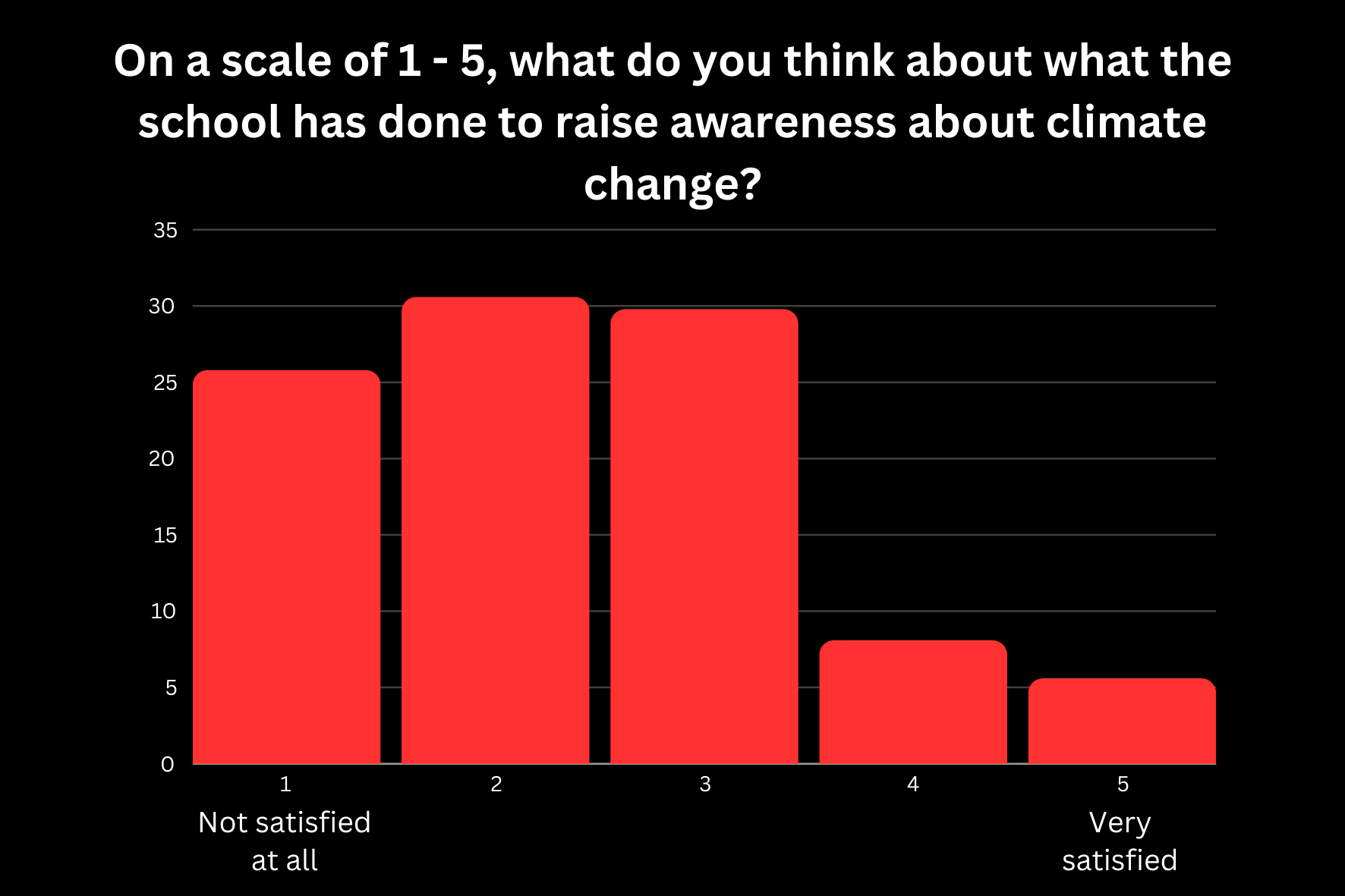
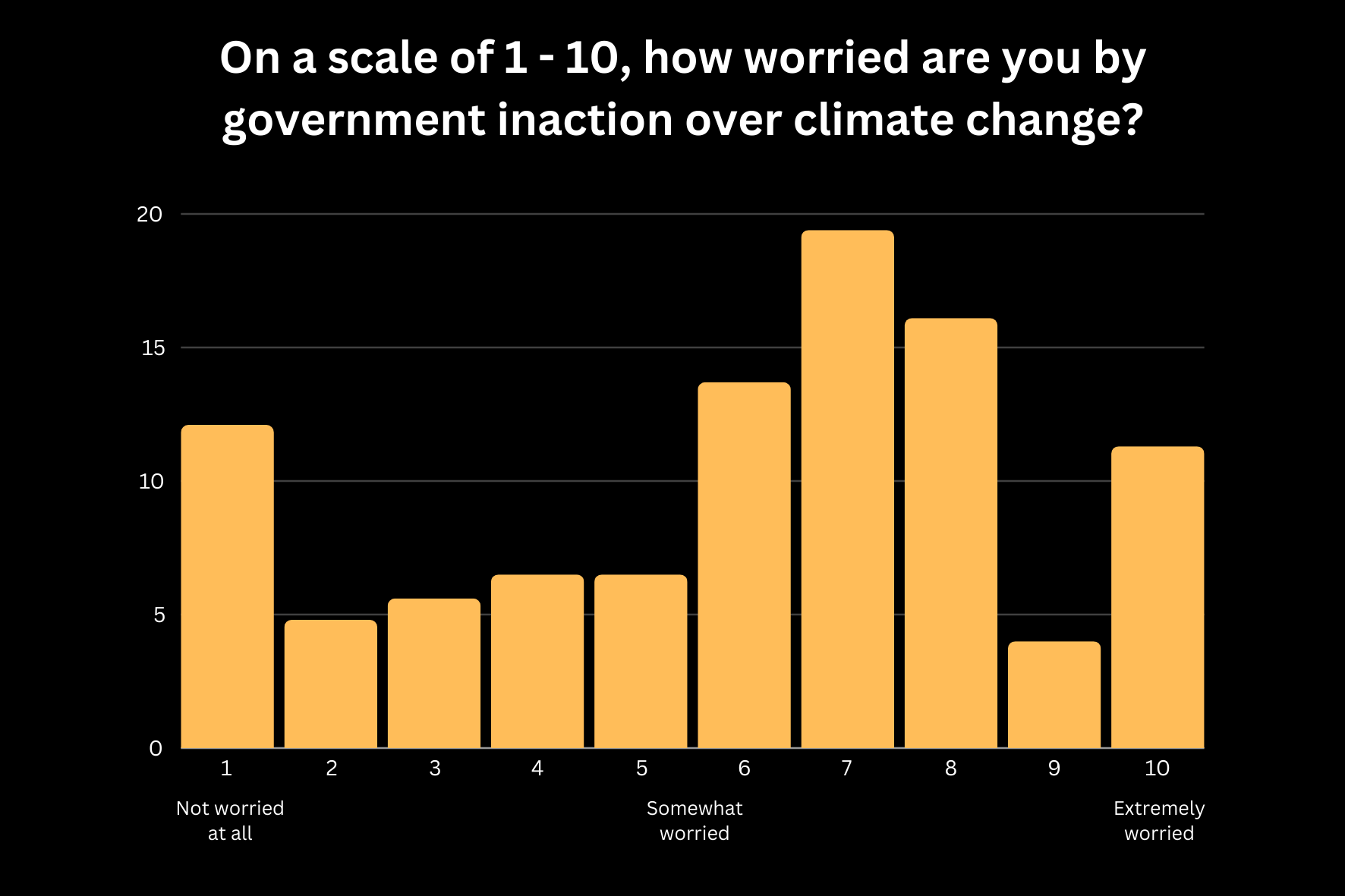
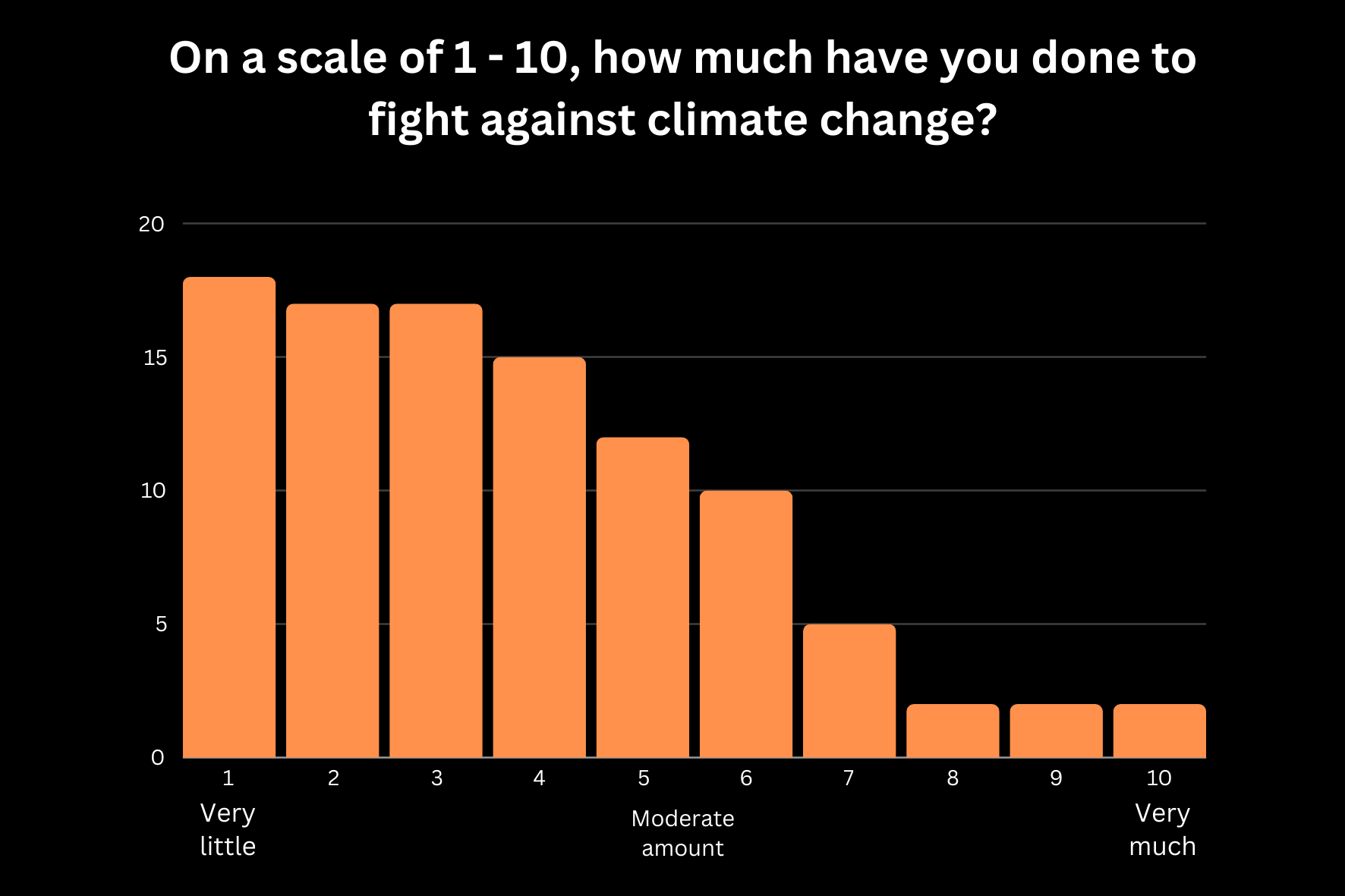
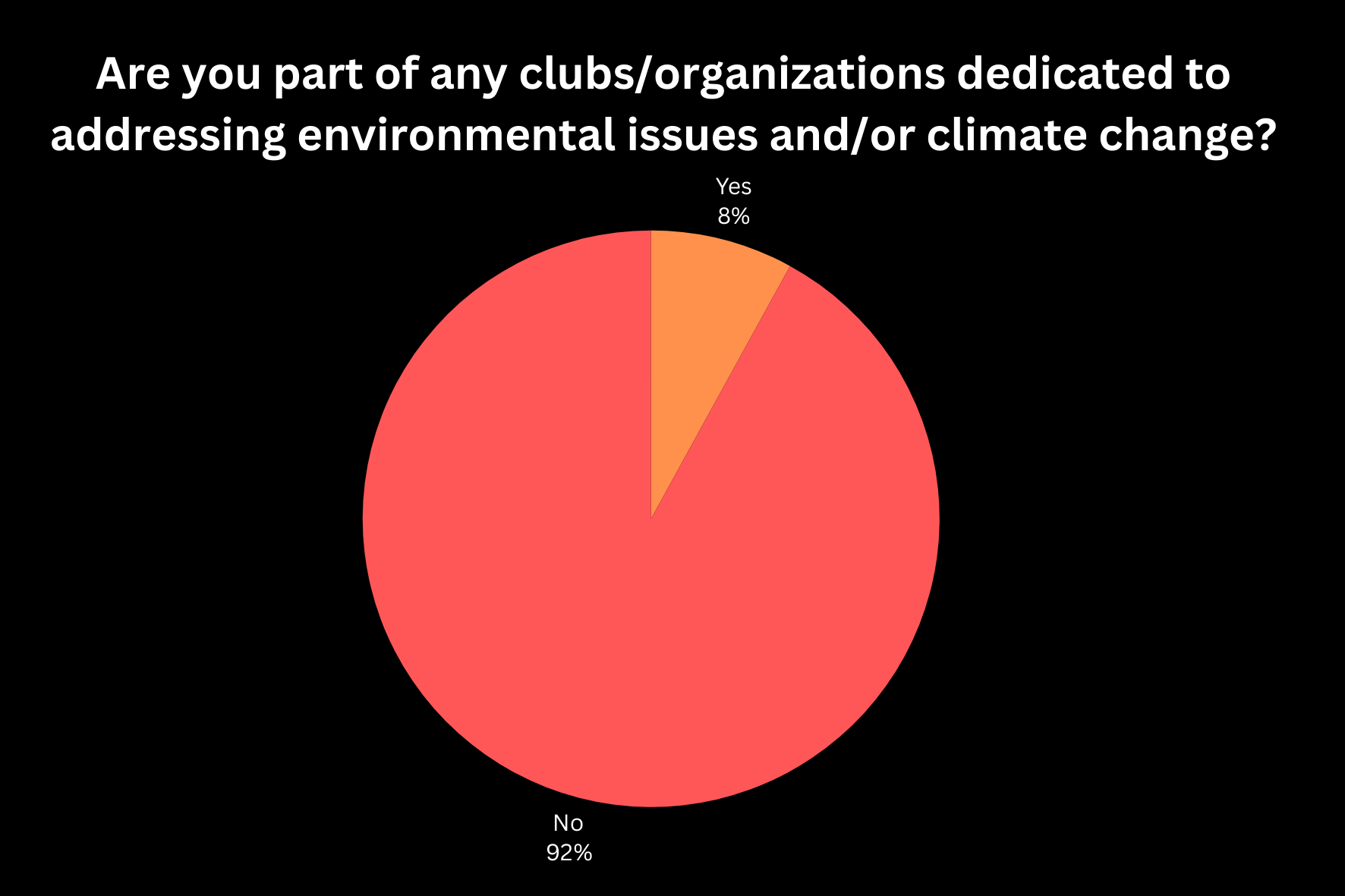
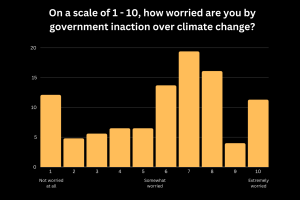
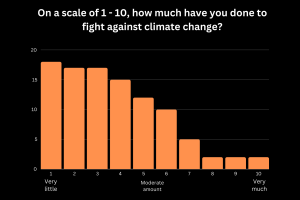
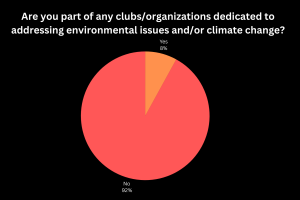
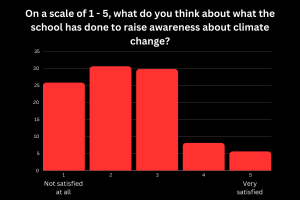












Chase Klipec • Nov 4, 2024 at 9:36 pm
I really like the message of this- even if it comes off initially as alarmist, it is a wake-up call, and one we need more of. We are a major cohort that has been alienated the most by the short-term greed and obstructive policies of the business elite, and as such our voting power will be critical in the next decade to bring these issues to the forefront.
I really like the sample size and think it portrays a predictably condemning picture of Westwood’s views. I think for a future survey having short-answer selections may improve the quality of responses. Something like “I engage with initiatives or efforts to educate or prevent climate change several times a month/week,” or “I don’t think I know as much as I should about what our government in doing with respective to climate change” Responses that best represent their action might be much more revealing and encourage honesty about what people actually do.
The vast majority of us students accept the scientific truths of global warming, fossil fuel resource depletion (which will inevitably cause a brutal bottleneck of the energy that all our societies run on) and the seventh mass extinction. But very few have the time, energy, or even the heart in our already over-scheduled, racing, and stressful lives to sacrifice time or the conveniences of our standard of living. Even for the sake of something as all-encompassing as our consumption of energy and products founded in our limited supply of hydrocarbons, it is hard to break from the pack when we are up to the neck in the rat race. I believe deep self-guided research is everything for a subject as obtusely politicized as climate change. Find out what the truths are, decide where you wish to act; how you can prepare; understand you can make a difference while balancing your social contract. We just have to try.